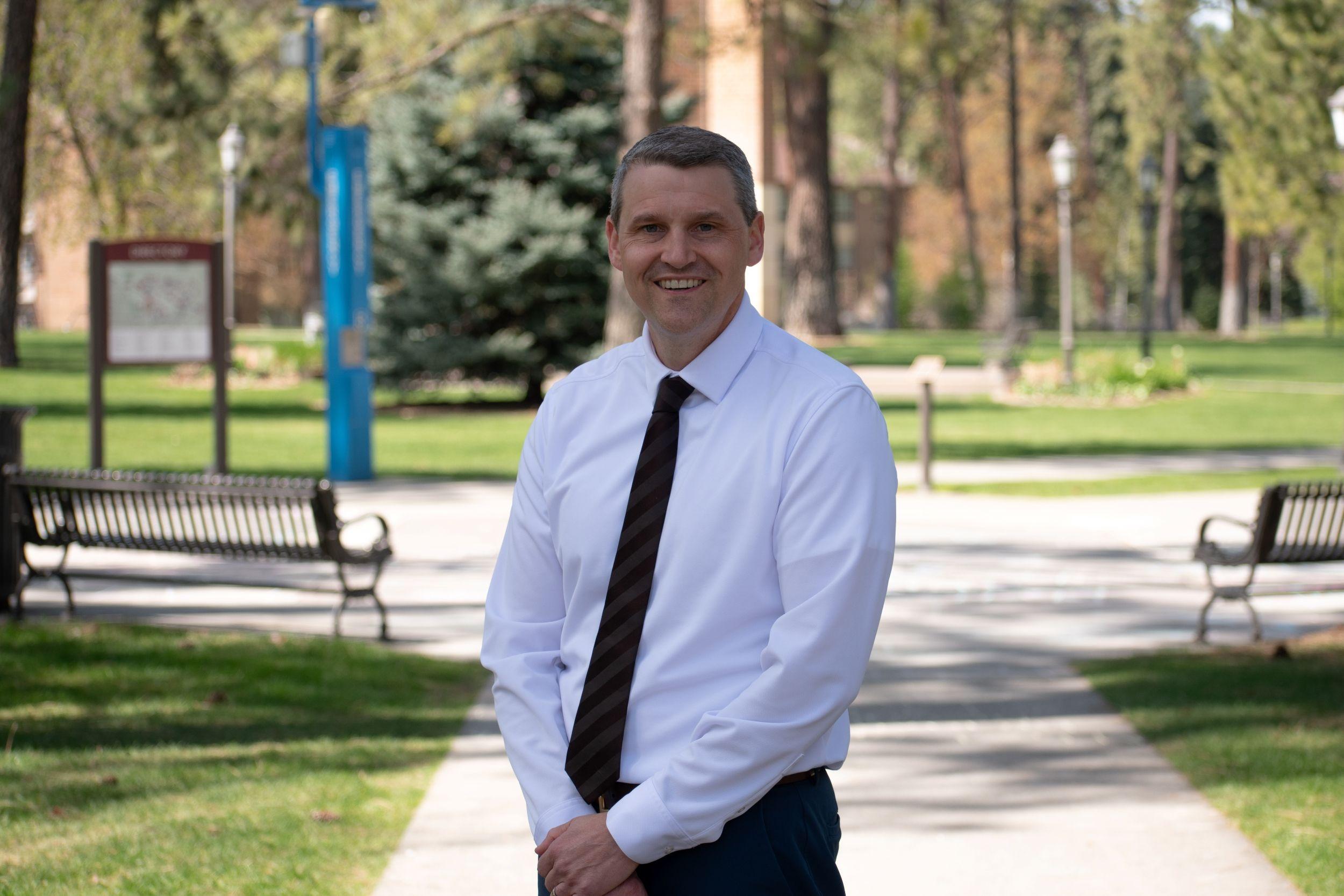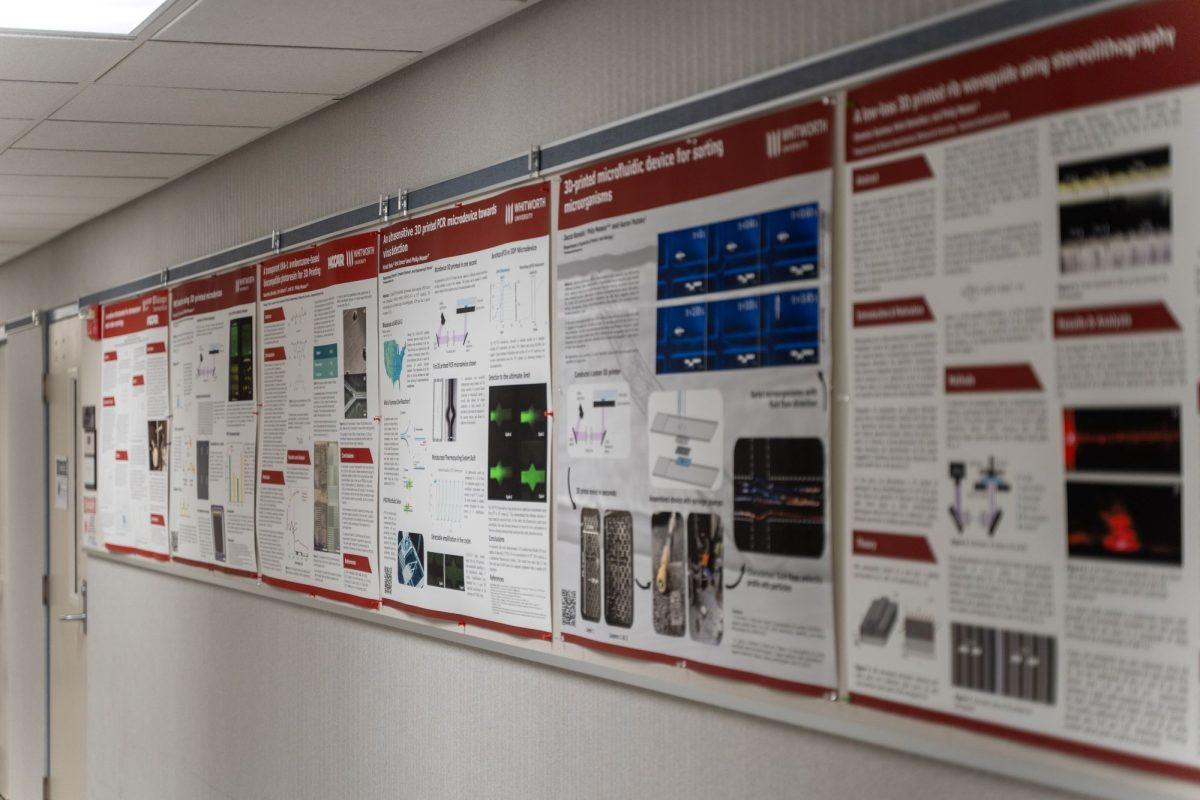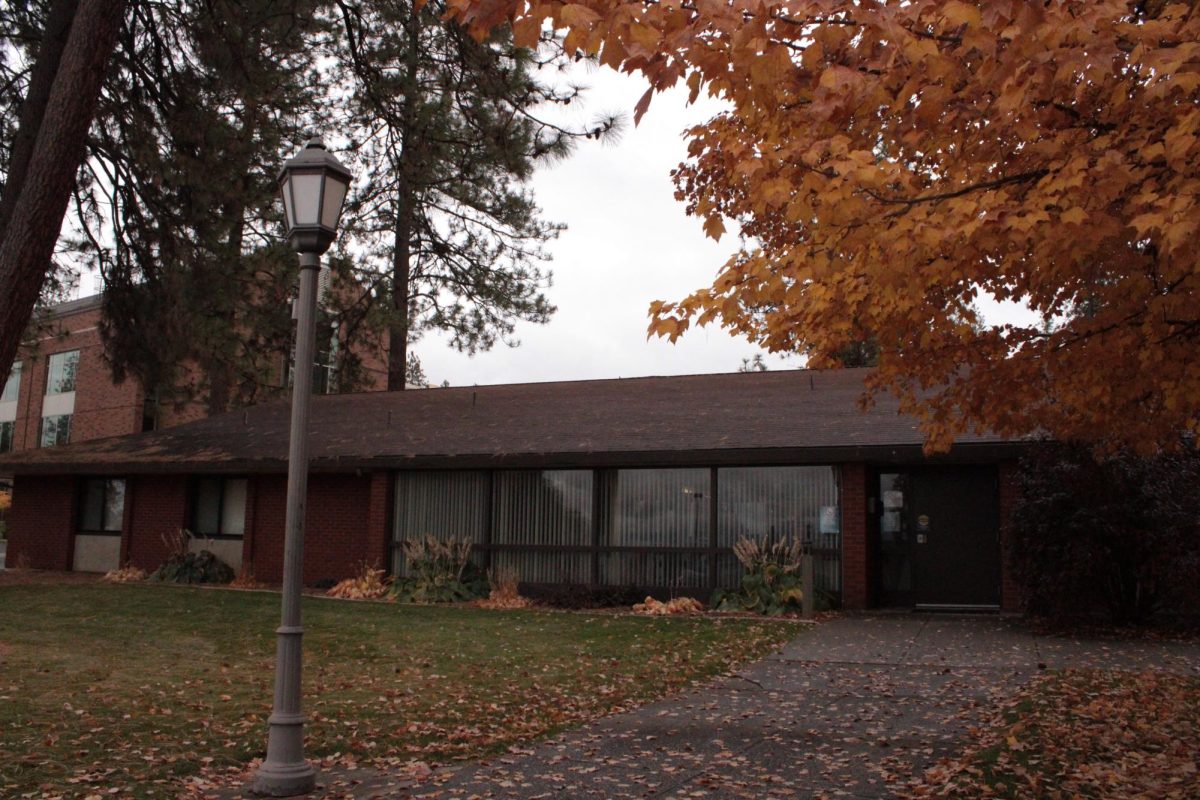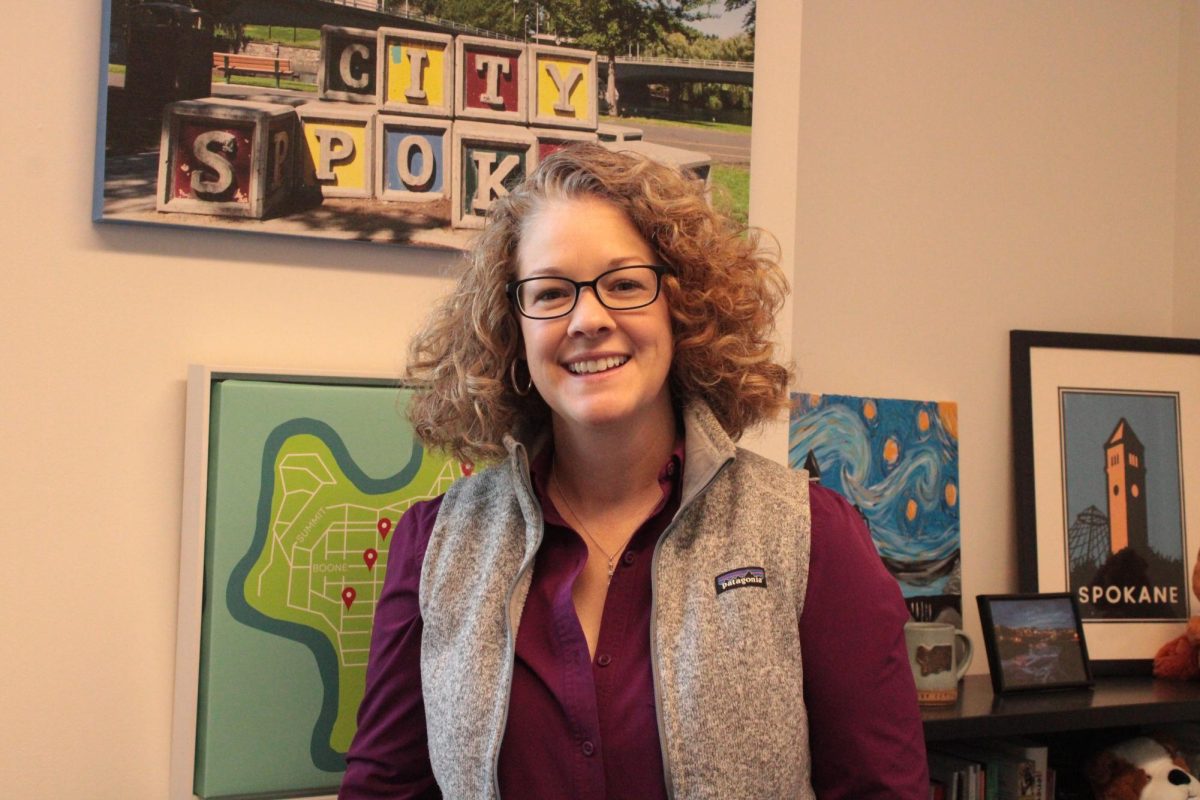
In January of 2024, Whitworth University’s associate dean for student life, Tim Caldwell, won the National Association of Student Personnel Administrators (NASPA) Excellence Award. The award was given for his unique handling of conduct meetings that prioritized the relationship with the student and encouraged productive behavior.
NASPA is a higher education group that Whitworth is a member of. “Each year, NASPA recognizes the outstanding contributions of members who are transforming higher education through exceptional programs, innovative services, and effective administration,” according to naspa.org.
In October of 2023, submissions were accepted from NASPA and Caldwell’s document on Whitworth’s conduct meeting process was submitted. By December, Caldwell was notified that he was a finalist and by January it was announced that he had won the silver medal.
“What I applied for and won was the silver medal in the Student Conduct and Crisis Management piece, and what I did was I wrote up a little executive summary about how we have changed our process since I’ve been in this role of student conduct,” said Caldwell.
Since 2021, every student who comes to a conduct meeting fills out a survey beforehand. This helps Caldwell understand what the student’s values are, how they are feeling about the conduct meeting and what they think is the best way to move forward. The student is involved in the process, and generally ends up choosing what they feel would be the best action to correct behavior.
“What I’m trying to do is get to know them for more than just the incident report,” said Caldwell. “I’m posturing them in a way that they understand that this is a growth opportunity.”
Using the information of the student’s values and character, Caldwell chooses the best way to help correct behavior. Once done with sanctions, which could be something such as a reflective activity, community service or a fine, the student fills out another survey that Caldwell and the students go over together. This helps the student reflect through words (both written and spoken) of what they learned. According to Caldwell, this reduced the recidivism rate by 90%, meaning offending students are far less likely to violate policy again.
In the first year of this system, violated conduct policies went down by about 50%, and in the second year went down by 25%. “The amount of policies being violated by the introduction of this process was really cool from a data perspective, so that’s what I submitted to NASPA,” said Caldwell.
This conduct process also creates a relationship between Caldwell and the student, so the individual knows that there is an administrator to whom they can turn to and ask for help. “I get to build this relationship with them where I, [if I do it right, establish] myself as someone who’s rooting for them and someone who’s cheering them on,” said Caldwell.
Caldwell was excited to win the award and is hopeful for how this conduct process can benefit students and schools. “It was really cool to see that this program that I introduced really was making a change and was something that was scalable on a level that was making some real difference,” said Caldwell.

















